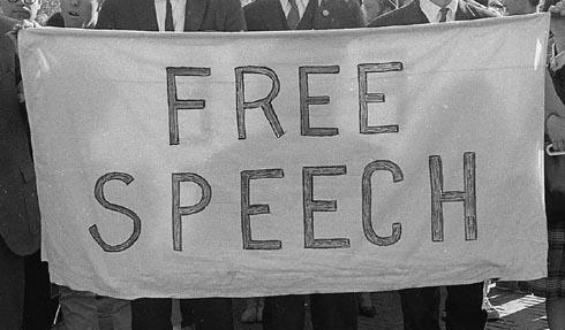When Journalists Only Care About The Free Speech Rights Of Other Journalists

I’m not sure there’s a bill before the Legislature this session that I dislike more than HB1471.
The bill was introduced by Rep. Alex Looysen (R-Jamestown) and has the backing of all manner of organizations including the North Dakota Newspaper Association. Ostensibly it would protect the free speech rights of student journalists.
I’m skeptical. Protecting free speech rights doesn’t require four pages of legalese.
Here’s why I hate the bill.
It sets a dangerous precedent that waters down, rather than protects, speech rights. To put it another way, by defining who an official student journalist is and is not in the law, it protects the rights of those meeting the official definition. Those students who don’t meet that definition – students working independently or blogging, etc. – are afforded no such protections.
Here’s the main thrust of the legislation:
That seems all well and good, until you realize that “student journalist” also gets a very narrow definition in this bill:
So the bill would guarantee the free speech rights of student journalists, but only if they work for school-sponsored media.
A student who sets up an independent media outlet – say a blog or something similar – is specifically excluded from this legislation.
Again, the legislation has support from a laundry list of organizations that are supposed be supportive of the 1st amendment:
The bill has already been endorsed by the North Dakota Newspaper Association and the Journalism Education Association. University of Jamestown President Bob Badal has previously said he supports the ideas behind the legislation. The bill is also being endorsed by Mary Beth Tinker, the student who was named in the Tinker v. Des Moines Independent School District case.
Tinker and Student Press Law Center Executive Director Frank LoMonte will testify before the House Education Committee on Tuesday, as will North Dakota Newspaper Association Executive Director Steve Andrist.
But how can any legislation in keeping with the 1st amendment contain a narrow definition of whose rights it protects? Why wouldn’t a statement making it clear that all students, regardless of their association with school-sponsored media, have the same 1st amendment rights as every other American citizen suffice?
It’s shameful that the state’s journalists would support a definition in the law which picks and chooses which citizens get legal protections from speech. Journalists aren’t some special class of citizens. They aren’t entitled to more rights than the rest of us.
There is no question that our nation’s campuses have become hostile to dissenting opinions and free speech, and that’s a problem lawmakers should address, but the 1st amendment is for everybody.
The Legislature should reject this bad public policy unless it is amended to apply universally.






